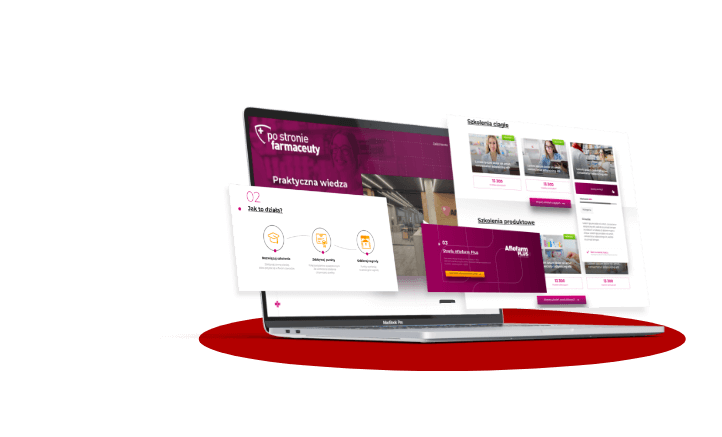React.js

What is React.js
React.js is a popular JavaScript library created by Facebook, used for building interactive user interfaces. It simplifies the creation of complex web applications through a component-based programming model, allowing for code reuse and efficient state management. With a virtual DOM, React.js speeds up the rendering process, resulting in smoother application performance. It is widely used in both small projects and large, complex systems.
Why choose React.js?
Free Consultation
Where do we use React.js?

FAQ
-
Is React.js suitable for my specific type of project?
React.js is an excellent choice for projects requiring interactive and dynamic user interfaces. It is suitable for both single-page applications (SPA) and more complex projects that require fast component rendering and efficient state management. The component-based approach of React.js allows for easy project scaling and high-quality user experience.
-
Is React.js scalable?
Yes, React.js is scalable and ideal for large and complex projects. Its ability to break down applications into smaller, manageable components and its integration with various tools and libraries allow for efficient application development as your business grows. Additionally, React.js is supported by a large developer community and regular updates, ensuring stability and long-term project growth.
-
What are the popular libraries and tools that can be used with React.js?
Popular libraries and tools used with React.js include Redux for global state management, React Router for navigation management, Material-UI for implementing UI components in line with Material Design, and Axios for handling HTTP requests. Redux is particularly useful for projects requiring advanced state management, while React Router ensures smooth view transitions. Material-UI offers ready-to-use UI components that can be easily customized, speeding up application development.
-
Is React.js suitable for integration with existing systems or services?
Yes, React.js is compatible with various systems and services due to its open architecture and extensive developer community. We can easily integrate React.js with existing APIs, databases, and other technologies, tailoring the solution to the specific needs of your project. React.js supports various integration approaches, including RESTful APIs, GraphQL, and WebSocket, ensuring project flexibility and scalability.
-
What are the main differences between React and other popular front-end frameworks?
React is a library for building user interfaces (UI), while other front-end frameworks, such as Angular or Vue.js, are complete MVC (Model-View-Controller) frameworks. React is more minimalist and focuses on rendering components, making it more flexible and better suited for projects requiring high performance and fast rendering.
-
What are the advantages of using React in the context of reusable components?
React offers the ability to reuse components, significantly increasing efficiency and ease in application development. By reusing components, developers can build the user interface faster and ensure consistency across projects. This approach reduces the amount of repetitive code and simplifies future application maintenance.
-
What are the advantages of using React.js in the context of integrating with external APIs and services?
React.js enables easy integration with external APIs and services due to its modular component structure and libraries for state management. We can use libraries such as Redux for global state management, Axios for handling HTTP requests, and Apollo Client for GraphQL integration. This allows for efficient data management and interaction with the application's backend, which is crucial for projects requiring complex integration.
How to choose a good React.js Software House?
We are here to help!

